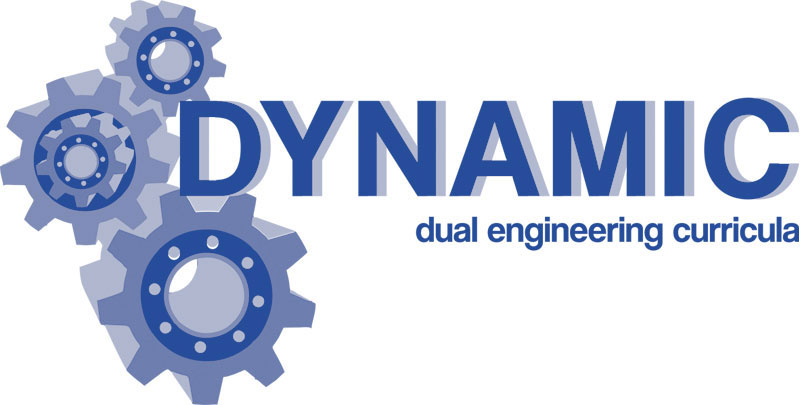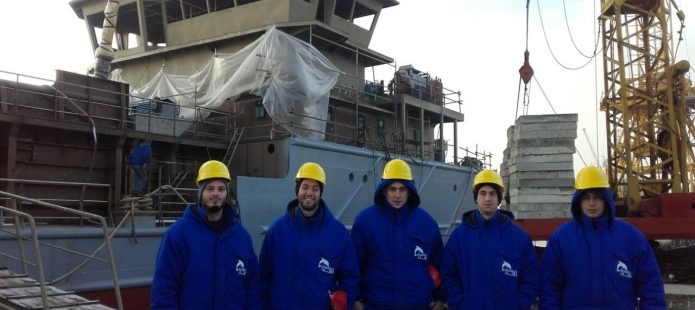Author: Galina Ilieva, Lecturer at the Department of “Naval Architecture and Marine Engineering” at TU Varna (TUV)
In the months of March, April and May 2019, three regional focus group meetings were organised among DYNAMIC partners from Bulgaria: TUV, MTG “Dolphin” and Keppel FELS Baltech Ltd (KFB). The meeting main tasks were as follows: to define the needs of industry and training needs of our students; to find appropriate models, timetables and organization of VET; to determine the syllabus content; to arrive to an agreement on contractual terms between the university and stakeholders; to determine how to implement the programmes (e.g. assessment methods, time-schedule, expenses, confidentiality, property rights, labour protection, etc.); to develop a toolkit to facilitate and support the communication between industry and university; to define topics for training workshops; to determine templates for students’ diaries and contracts, etc.
The pilot implementation for students from Technical University of Varna had already started in October 2018 with students from the specialty of “Marine engineering”. Six students from this specialty have now passed their practical education and training in “Repair of marine machinery” in workshops of our industrial partner MTG “Dolphin”-Varna.
Next, students from the specialty of “Naval Architecture and Marine Technology” were also invited to attend a workshop for introduction to the VET specifics and they were subsequently involved in receiving the dual training during the summer vacation.
The considered and accepted structure of VET for students from the specialty of “Naval Architecture and Marine Technology” is organised in two phases: workshops during semesters at the University; and in the partner’s company – during the summer vacation. Students start their dual education after the 6th semester. Student applications are approved by the industrial companies. Regarding the workshops, one is organised at the Technical University and other ones at the locations of each of both the the industrial partners. Goals of workshops are to promote the VET dual study opportunity among the students as well as to present and discuss issues and questions about the requirements of the business partners providing the practical training..
The practical phase of the studies, taking place during the summer vacation, is characterised by the following: update of the syllabus in agreement with the needs of the industrial partners (where changes are possible); students work on practical tasks provided by the companies; contracts are to be signed once between the Technical University and the industrial partner, and once between the company (industrial partner) and each student; students have an obligation to fill-in practical diaries during the entirety of their training periods.
In regards to the DYNAMIC project, students are able to work on design tasks either directly at the company KFB premises or in specially arranged premises organised at the University.
VET for students from the specialty of “Marine engineering” involves:
- practical training and students gaining knowledge in specific subjects, related to the processes of construction, montage, de-montage and repair of marine machinery in workshops run by the industrial partners;
- student’s working on specific tasks provided by their industrial mentors and professors;
- students and others providing feedback that can lead to an update of the syllabus – where needed and possible;
- student applications being approved again by the industrial companies followed by signed contracts by both parties;
- students completing logbooks (diaries for practical training) for their VET hours with a detailed explanation of the tasks undertaken and solved.
Logbooks for all students from both specialties are under the control of professors and industrial mentors.
In addition to the above, four Master level students from our new specialty “Design of marine power plants and systems” are also involved in the dual education. These four students within the first two semesters of their study were involved in VET in the following subjects: “Computer systems for design of ships and marine equipment“ (with a first part (15 hours of lectures and 45 hours of exercises) and a second part (60 hours of exercises)); and “Design of systems and devices for ships and marine equipment“ (with 30 hours of lectures and 15 hours of exercises).
The DYNAMIC Project is still ongoing, the TU Varna will continue to work on the development of new programmes and explore the possibilities to broaden uptake by students and implement project outcomes to VET in other specialities.

